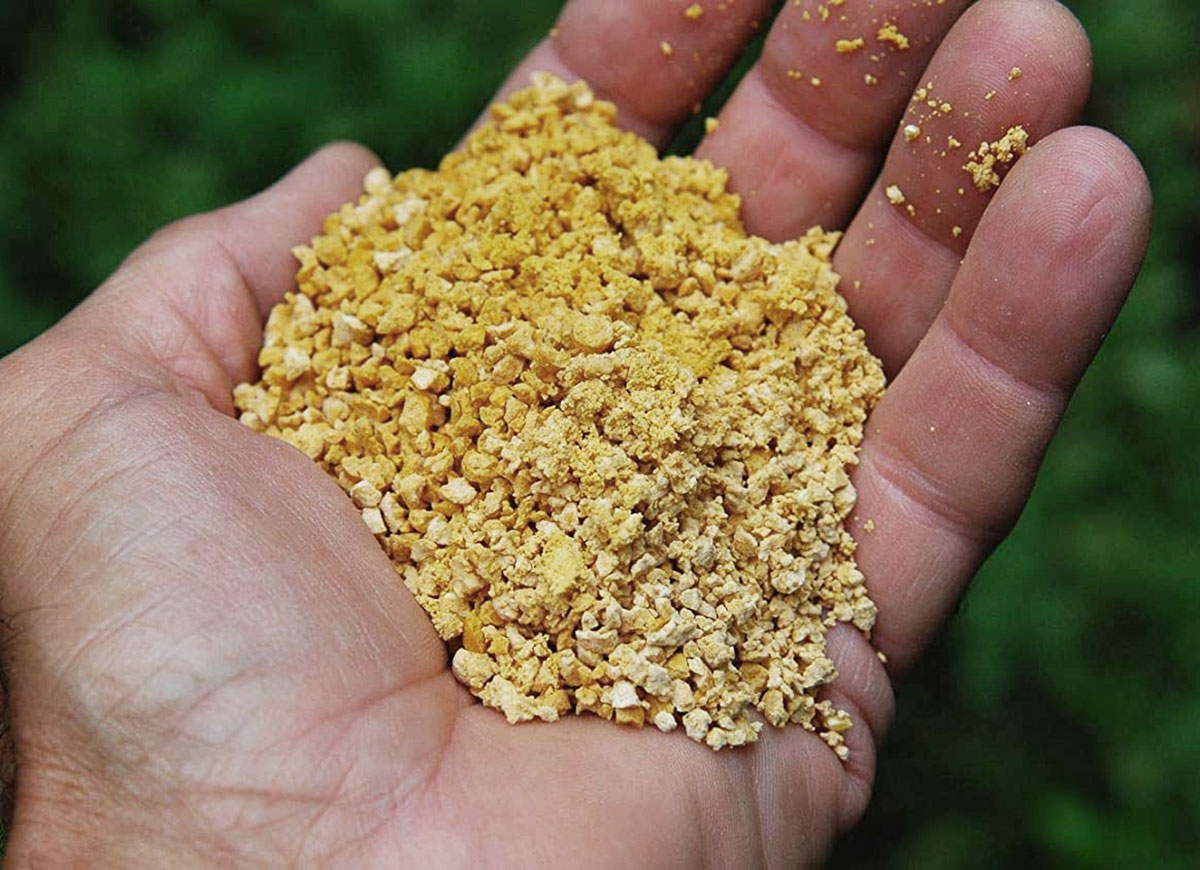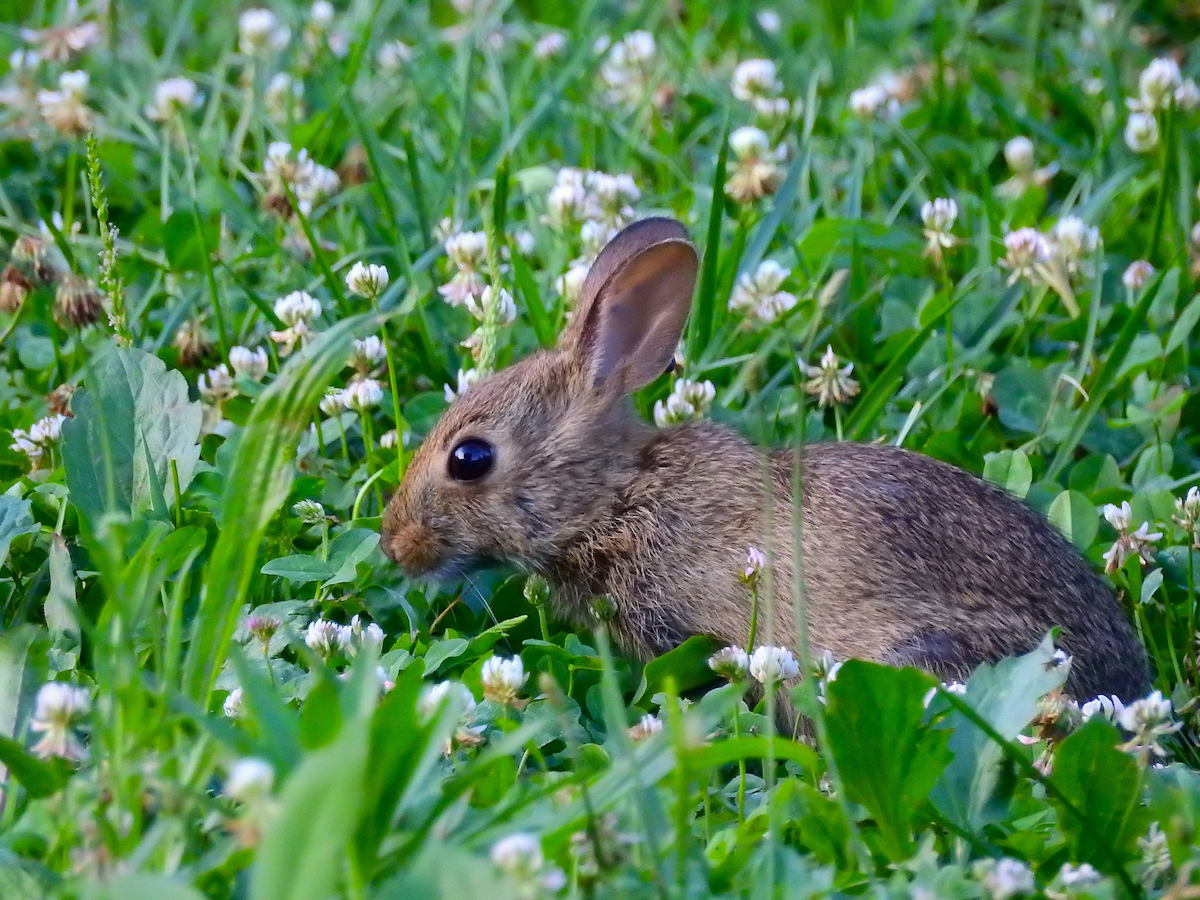

We may earn revenue from the products available on this page and participate in affiliate programs. Learn More ›
Stubborn weeds are the bane of a beautiful lawn. Yet, although it’s pretty stubborn, clover (aka Trifolium repens) is actually beneficial. It brings nitrogen into the soil and encourages grass growth when it decomposes. In fact, some grass blends even include microclover as a welcome addition to a lawn.
Still, many homeowners simply don’t appreciate all those small white clover flowers interrupting their field of green. (It can also attract rabbit pests, which love to snack on clover as well as nearby garden plants.) Mowing it over is only a temporary fix, as clover always grows back, and fast. So if you’re adamant about keeping this herbaceous three-leaved intruder off your landscape, you’re in luck! Read on for easy DIY remedies for how to get rid of clover for good.
10 Easy Ways to Remove Clover From Your Lawn
Proper lawn care, including the right mowing and watering habits, plus an assortment of clever hacks can send clover packing. Get started with one or more of the following tried-and-true solutions. (Before you do, please research the many good reasons for why you should not kill clover in your yard. Some homeowners are even pulling up turfgrass in order to plant clover lawns.)
1. Knock out clover with nitrogen.
Generally speaking, a well-fertilized lawn keeps all weeds at bay, but ensuring proper nitrogen levels will give you an extra edge against clover. It’s a lack of nitrogen that allows this weed to thrive, because clover can produce its own nitrogen—so it’s got a leg-up on a lawn that’s low in nitrogen. Try a nitrogen-rich weed-and-feed formula. Organic fertilizers might do the trick if you have a small amount of clover, but if your lawn is becoming overrun, choose a quality lawn fertilizer that is not slow-release.

Tried-and-True Advice
“If I need to tackle a small patch of clover, I’ll usually reach for my hori-hori, which is a handy gardening knife with a serrated blade that easily severs roots below the soil line and makes weeding so much easier. For clover plants that are in tricky spots, like in between patio bricks, horticultural vinegar spray definitely comes in handy. While I generally like having clover around, if I need to prepare a new garden bed where clover is growing, I lay down overlapping pieces of cardboard and leave them in place for a month or two to smother out any weeds that are growing there – clover included.
I personally like having clover in my yard because I find that mixed grass and clover lawns are a bit sturdier, and they can basically take care of themselves. After all, clover plants fix nitrogen into the soil, so they function somewhat like a natural fertilizer and can boost the growth of nearby grass plants.”
—Lauren Landers, Contributing Writer
2. Remove it manually.
Don’t give clover a chance to spread. Get rid of small clumps as soon as you notice them by gently loosening the soil around the base with a spade or your fingers, then plucking the clover up. Be sure you get all of the roots.
3. Deprive it of oxygen and sunlight.
A natural way to eliminate clover in your lawn is to deprive it of sunlight and oxygen. Place plastic sheeting (a garbage bag will do) on top of clover, securing the corners so it won’t blow away. This ought to kill the weed in a few weeks, but use this method only on large clover patches; otherwise, surrounding grass will probably experience collateral damage.
4. Douse it with a homemade weed killer.
Here’s a natural weed killer recipe many gardeners find effective: Mix vinegar with a small amount of dish soap, put the mixture in a spray bottle, and spot treat clover clumps. Just take care to avoid surrounding plants.
5. Kill it with corn gluten.

Available for purchase online and at your local garden center, corn gluten meal can inhibit clover growth without damaging any nearby plants. It releases organic dipeptides into the soil, which dry out clover seeds and make it more difficult for them to sprout. Spread about 20 pounds of corn gluten meal per 1,000 square feet of lawn, water well, and allow to dry naturally.
6. Hit back with herbicide.
If you’ve got to pull out the big guns to get rid of clover, broadleaf herbicides can do the job. These weed control products generally contain the chemicals Dichlorophenoxyacetic acid, Mecoprop, and Dicamba, which disrupt normal plant growth patterns and cause the weeds to twist, the leaves to cup, and the stems to crack. While these herbicides don’t harm surrounding grass, they can hurt some garden plants and insects, so it’s wise to spot treat directly on clover rather than apply freely.
7. Mow grass higher than 3 inches.
While some folks really like the look and feel of short turf, leaving your lawn a little bit longer can keep a clover problem in check. Clover grows low to the ground and has a shallow root system. So if you raise your mower deck and keep grass 3 or more inches high, your taller grass can effectively block sunlight exposure to the clover. This helps prevent clover from growing and spreading throughout your lawn.
8. Water properly.
Maintaining the ideal moisture level is one secret to discouraging clover. Too-wet turf is the perfect habitat for weed seed germination, but thirsty grass is typically stressed out—and that invites weeds as well. While the right amount of watering will depend on your soil and grass species, gardening pros recommend monitoring your lawn rather than taking a set-it-and-forget it approach to an irrigation system. Water your lawn deeply once or twice a week is a rule of thumb, but temper that by remembering to water only when the lawn starts to look dry, or growth seems stalled.

9. Kill clover naturally.
Those who’d rather avoid using chemical herbicides may want to check out the organic weed killer A.D.I.O.S. (the name stands for Advanced Development in Organic Solutions). This non-toxic, odorless, and all-natural selective weed killer is safe to use around pets, livestock, children, crops, and bodies of water. It not only weakens and kills clover, it won’t harm healthy grass. Spray it directly on clover as well as other unwanted weeds, such as dandelion, ground ivy, lambquaters, and yellow mustard. It may also be effective against poison ivy, sumac, buckthorn, bettersweet, ragweed, and other noxious and invasive species.
10. Seed bald spots in your lawn.
After you’ve successfully killed patches of clover, there may be bare areas on your lawn that are even less attractive than the weeds were. The solution is to lay down quality grass seed right away, and cover it with a thin layer of mulch or straw. Water the grass seed regularly to promote new growth, and follow proper lawn care for fertilizing and mowing to keep clover from coming back.
FAQs
Clover typically flourishes in lawns that are underfed, overwatered, and mown too short. Practice proper lawn care with a nitrogen-rich fertilizer, water only when grass begins to feel dry, and maintain a turf height of 3 inches or more for clover control.
A selective herbicide can target clover and other weeds while leaving grass unharmed. Avoid using nonselective herbicides, which can damage any plants with which they come in contact. Even with a selective herbicide, it’s wise to spot treat rather than broadcast chemical weed killers.
If your idea of a gorgeous lawn is an uninterrupted carpet of uniform grass blades, then you will probably want to get rid of clover. There are, however, good reasons to invite clover: It has a lovely aroma, tends to stay green during periods of drought, attracts bees and other beneficial insects, and can even smother other weeds.
Clover can flourish on your lawn when growing conditions favor the weed more than the grass. If your lawn is low on nitrogen, for instance, clover is likely to thrive. And because clover is a perennial, if it is present during one growing season it will probably come back the next.
